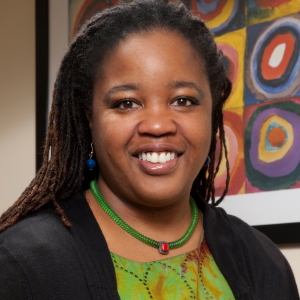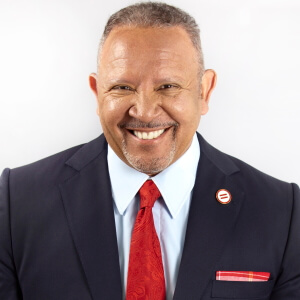Farai Chideya Speaker Biography
Award-Winning Author, Journalist, and Socio-Political Analyst
Farai Chideya has covered the economy and jobs, politics, and race relations during her thirty year career as an award-winning journalist, author, professor, and speaker. With her deep knowledge of the future of work, politics, culture, and race, Chideya speaks on a range of topics: from unconscious bias, to media equity, to African American history and culture, and to motivational speeches about finding your right livelihood. She brings up issues that people find difficult to talk about in a way that encourages openness and new understandings within communities, campuses and workplaces.
Our Body Politic
Farai is the creator and host of “Our Body Politic,” a weekly sociopolitical audio show by and for women of color. This newly syndicated public radio show and podcast is unapologetically centered on reporting on not just how women of color experience the major political events of today, but how they’re impacting those very issues.
New Book
In addition, Chideya is working on a new book that draws on her thirty year career as an award winning journalist. Based on her essay How We Save Our Body Politic: Reflections from a Black Female Journalist on America at the Precipice, her tell-all account will draw from her personal archives to demonstrate how media and institutional racism kept America in the blind spot of truth.
Writer
During the 2016 election she was a Senior Writer covering politics and data at ESPN’s FiveThirtyEight, and a Distinguished Writer in Residence at New York University’s Arthur L. Carter Journalism Institute.
Books
She is the author of six books, including The Episodic Career: How to Thrive at Work in the Age of Disruption and The Color of Our Future, a deep dive into the changing racial demographics of this country from the perspective of young Americans.
Media
Chideya frequently appears on public radio and cable television, and has worked for CNN, ABC, and NPR. She is also the former longtime host of NPR’s News & Notes. Currently, she serves as the Ford Foundation’s journalism program officer.
Education
Diversity keynote speaker Farai Chideya was raised in Baltimore, Maryland, with strong family ties to Zimbabwe. She graduated with a B.A. from Harvard University, where she was elected Chief Marshal, the highest honor accorded to a member of the graduating class at their 25th reunion. She lives in Brooklyn, New York.
Farai Chideya Speaking Topics
Unconscious Bias; Conscious Workplace Co-Creation
Unconscious bias is not a moral failing. But failing to address it in the workplace costs workplace morale and money. Unconscious bias -- the way stereotypes and, more importantly, behaviors triggered by them -- are hard to spot. That's precisely why they are so important to resolve. Their "stealth mode" can make them hard to attack. This is particularly true from approaches that focus on de-biasing the behavior of individuals. Often that doesn't work, and sometimes can even been harmful. For example, research by Professors Frank Dobbin and Alexandra Kalev now shows that broad-based sexual harassment training could have unanticipated blowback effects, provoking greater harassment by people aggrieved at taking the training. What works better is when managers are told that preventing and remediating sexual harassment is a core part of their job, and they will be rewarded for doing well at it... and take a hit if they don't. As someone who lived through, and left, a hostile work environment, I know what it's like to feel you have no good options. But there actually are strong options for co-creating workplace race and gender equity. You have to know how to do it. As someone who now works, among other things, on creating race- and gender-equity interventions and seeing how well they work, I can walk you and your team or industry gathering on the ways to really promote equity in your workplace. One key is to follow evidence-based research and not intuition. Another is using the right organizational development strategies to do deep listening across your organization and co-create workplace equity that really serves the needs of your institution. The point in the end is not to change individual minds, but to create system-wide practices that make your workplace emotionally healthy, equitable and profitable. And those solutions do exist. Let's explore them together.
What It Takes to Win at Work Today: Mastering the Episodic Career
The average lifespan of a job today is 4.4 years, much less for younger workers. Today's workers have to be resilient, knowledgeable, and nimble -- able to pivot on a dime and head for high ground when industries collapse. Job search has changed, and not always in obvious ways. Knocking on the doors of local businesses can be more successful than online job search. Drawing on years worth of research and interviews with hundreds of people, Chideya gives a point-by-point breakdown of what it takes to protect your and your family's interests in this new world of work by embracing the model of the episodic career -- a mindset of psychological self-employment that helps not only workers but companies and teams as well.
The Future of Work is Now
When it comes to the world of work, there is “disruptive innovation” and then there are those who find their jobs or careers disrupted. In this talk, Farai Chideya takes a holistic look at how work in America has changed in the past decade via technology and globalization; what lies ahead; how retirement readiness is a hidden peril for our nation, and how communities can deal productively with the wide disparities in work and wealth.
The Color of Politics
The 2020 political race has proven to be rife with attacks based on race, religion and national origin at the same time our nation is becoming more diverse. Farai Chideya has covered every Presidential election since 1996; co-moderated a Presidential debate during the 2004 season; and currently is a political reporter and senior writer for the go-to political news outlet FiveThirtyEight.com. She demonstrates why the destructive xenophobic tendencies in our political discourse are understandable in context -- as people are fearful of the future, and similar trends are happening in countries like France -- but cannot be excused or tolerated.
Women's Empowerment: Loving Your Inner "Impostor"
Like so many high-achieving women, Farai Chideya has struggled with believing that she was deserving of the gifts the world gave her. At 25, she was a political analyst on CNN, a book author, and one of the first bloggers in the world. As she progressed to even more successes, she privately dealt with struggles including the eating disorder bulimia and a fruitful but initially painful reunion with her estranged father. Now in her forties, Chideya has learned skills that allow her to accept and embrace her whole self. Successful women are prone to the "impostor syndrome," a psychological disorder which makes us question if we're good enough for our success. Chideya's message -- to love your inner "impostor," thus breaking the cycle of self-fear -- resonates with women of all ages and stages.
The New Face of Race: What Happens to Equality When We're All Minorities?
The Census predicts that a generation from now, America will have no racial majority. But that doesn't mean we will be an equal society. How do we keep our eyes on the prize of equality as we head towards a "post-majority" era? Using powerful visual and multimedia aids as well as a dynamic town-hall format, Chideya walks us through what it means to have a truly inclusive vision of equality that embraces the best of the American dream.
Farai Chideya Books
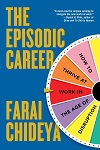
The Episodic Career: How to Thrive at Work in the Age of Disruption
Purchase Book
The Color of Our Future: Race in the 21st Century
Purchase Book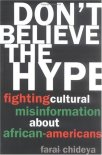
Don’t Believe the Hype: Fighting Cultural Misinformation About African Americans
Purchase Book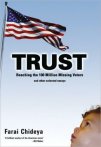
Trust: Reaching the 100 Million Missing Voters
Purchase Book

